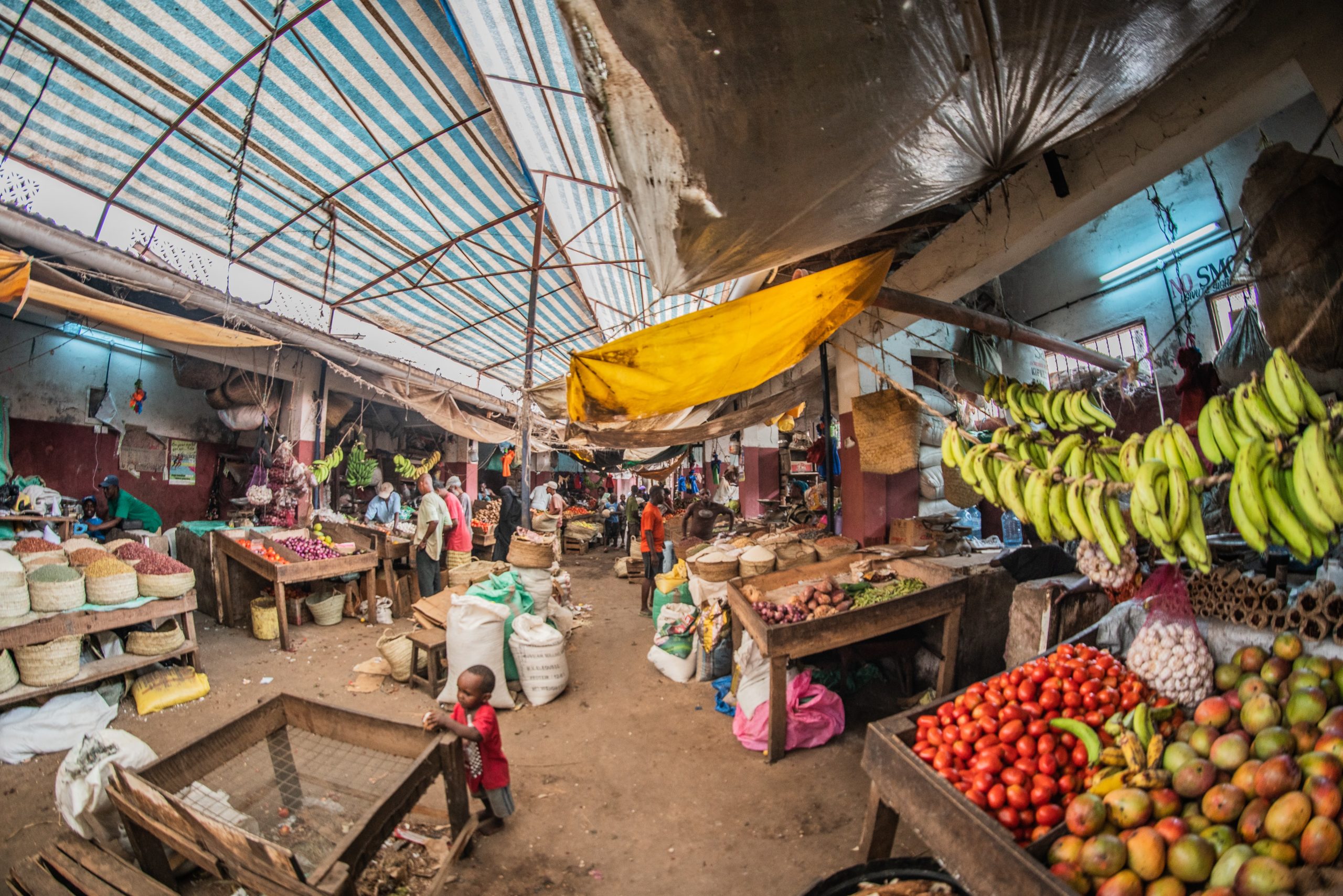
November 29th 2021
The Next Wave provides a futuristic analysis of BizTech and innovation in Africa. Subscribe here to get it directly in your inbox on Sundays at 3 PM (WAT).
Micro, small and medium businesses (MSMEs) account for up to 90% of businesses on the continent, providing an estimated 80% of jobs, and functioning as major drivers of economic growth. Sub-Saharan Africa alone has 44 million of these businesses. They are offline and, often, cash-strapped. For these businesses to survive, grow, create more jobs, and deepen economic growth, they need access to capital.
This problem is so huge that sixty-five million firms, representing 40% of these kinds of businesses in developing countries, need capital—a need that runs into $5.2 trillion every year, according to estimates from the International Finance Corporation (IFC).

Many of these businesses shy away from taking out loans with traditional banks because the process is tedious or sometimes impossible, mostly because most of these businesses are informal and do not have an adequate record of their earnings to scale through the paperwork these banks require. Other times, the issue is the high interest rates charged by traditional banks—sometimes up to 20% in some countries. But even when these businesses approach microfinance banks and digital lending platforms, which are supposed to provide financial and credit access to small businesses, they are also, sometimes, charged higher interest rates, which makes it difficult for them to repay these loans eventually.
Ultimately, they are discouraged from seeking more credit.

Credit, but with other facilities
In Africa, when motorbike riders do not have the finance to purchase a bike for their ride-hailing business, they rent one and pay high daily or weekly rates to the owners; then spend years paying installmentally if they want to own the bikes. Similarly, truck drivers acquire trucks in whatever way they can—borrowing, renting, or owning them. But before they can embark on a journey, they need money upfront to finance the long and arduous trip—buy diesel, insurance, and lunch for the law enforcement agents they’ll meet on their way. After scaling these hurdles, they still have to wait weeks and months before receiving payment from these cargo owners.
Motorcycle-based MAX and truck-based Kobo360 started as logistics providers to deliver packages to consumers. But they soon discovered that their model would not work if their transporters did not own motorbikes or could not finance their trip.
To solve this problem for the drivers and bike riders, MAX and Kobo360 not only offered them credit but also installed a Buy Now, Pay Later model in their product offerings. MAX purchases bikes for its riders and allows them to pay for it over a period of time. The bikers would eventually own the bikes once they’ve completed paying off the cost and some interest. Kobo360 also does something similar—it finances trips for its drivers. By using the data they have collected on their drivers, they lend to their drivers with the best performance, at a lower interest rate compared to traditional banking institutions. All these coupled with the use of its platform to connect cargo owners with drivers, allow more drivers to get into this business and take more trips than they would ordinarily have taken.
While the major solution these two companies offer is credit, they also use technology to digitise these offline businesses, providing a platform with a constant supply of customers for their drivers—which allows their drivers to complete more trips in a day.
Partner Message

Welcome millions of new customers from across the world by accepting payments for your business by accepting Discover Global Network cards on Flutterwave.
Create a Flutterwave account for FREE, here.
A recipe for progress
Last week, in one of the dozen mega deals struck in Africa this year, TradeDepot, a company that connects consumer goods to retailers, raised $110 million in Series B funding, to bring more retail stores to its digital platform, and digitise and expand its Buy Now, Pay Later (BNPL) service across the continent.
Last year, before TradeDepot raised this largest Series B by any B2B e-commerce platform in Africa, it raised $10 million in funding to expand credit offerings to retailers. But instead of the huge interest rates that we have seen earlier in this piece, it offered almost a 5% monthly interest rate to the businesses that use its platform.
When it launched its credit offering, it had more than 40,000 retailers on its platform; now, it has more than 100,000, TradeDepot’s CEO, Onyekachi Izukanne, said earlier this month.
Partner Message

MTN Nigeria Communications Plc (MTN Nigeria) recently announced that the public offer to retail investors for the sale of up to 575 million shares held in MTN Nigeria by MTN Group will be priced at N169.00 per share
The Offer will close on Tuesday, 14 December 2021 at 5:00 pm. Interested applicants can click here for more information.
It was able to do this because it spent its first five years building out the supply chain with technology; and onboarding retailers, one at a time, with digital wallets. After onboarding these retailers last year, it began to offer credit to them, which helped them in their growth. Unsurprisingly, combining its credit facilities with this supply network also led to a 200% increase in transaction volumes for retail store owners.
TradeDepot’s credit offering works hand-in-hand with a network that creates supply and demand for products that help small businesses make more profit. It connects small shops, kiosks, and retailers with wholesalers of global consumer brands that have access to food, beverages and personal care products. It then provides warehouses and a fleet of drivers to help the transfer of goods from manufacturers to the retailers in its network.
So, instead of digitising these businesses that are surviving without access to finance or a supply network; or offering access to credit without a supply network; or simply helping them digitise their businesses, TradeDepot does all three to achieve maximum impact. And with a low interest rate, of course.
TradeDepot’s progress this year is perhaps the perfect example of what happens when you provide credit and other facilities for businesses. Digitisation, low interest rates, and the establishment of a system where customers can pay for their purchase at a future date are important to creating a system where businesses can thrive in Africa.
From the Cabal
In case you missed these:
The blockchain is used for much more than trading cryptocurrencies, it can revolutionise businesses processes, redefine companies and entire sectors, and transform economies. Read more about its potentials here.
Have a great week
Thank you for reading the Next Wave. Please share today’s edition with your network on WhatsApp, Telegram and other platforms, and reply to this email to let us know what we can be better at.
Subscribe to our TC Daily Newsletter to receive all the technology and business stories you need each weekday at 7 AM (WAT).
Follow TechCabal on Twitter, Instagram, Facebook, and LinkedIn to stay engaged in our real-time conversations on tech and innovation in Africa.
Sultan Quadri, Staff Writer, TechCabal.





















